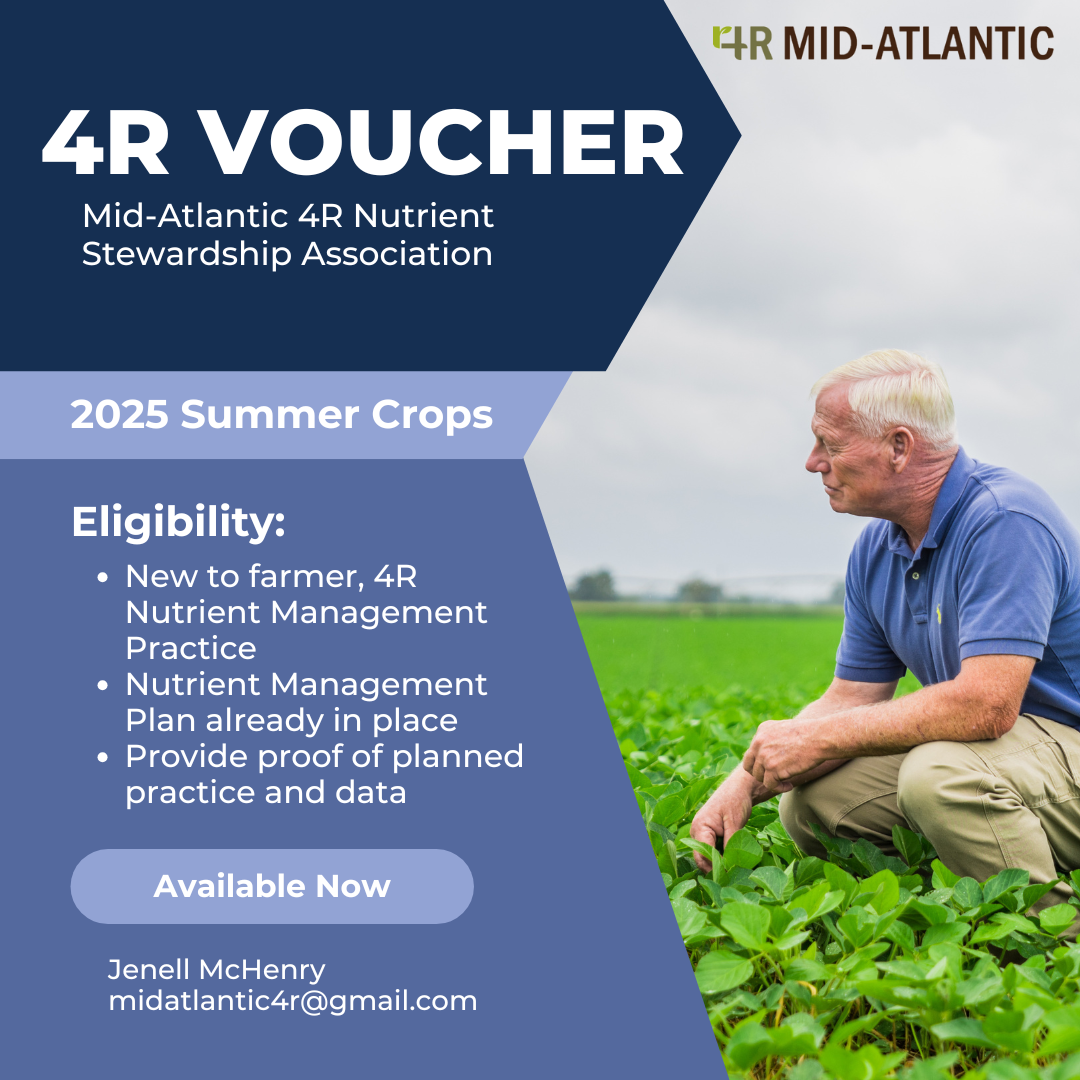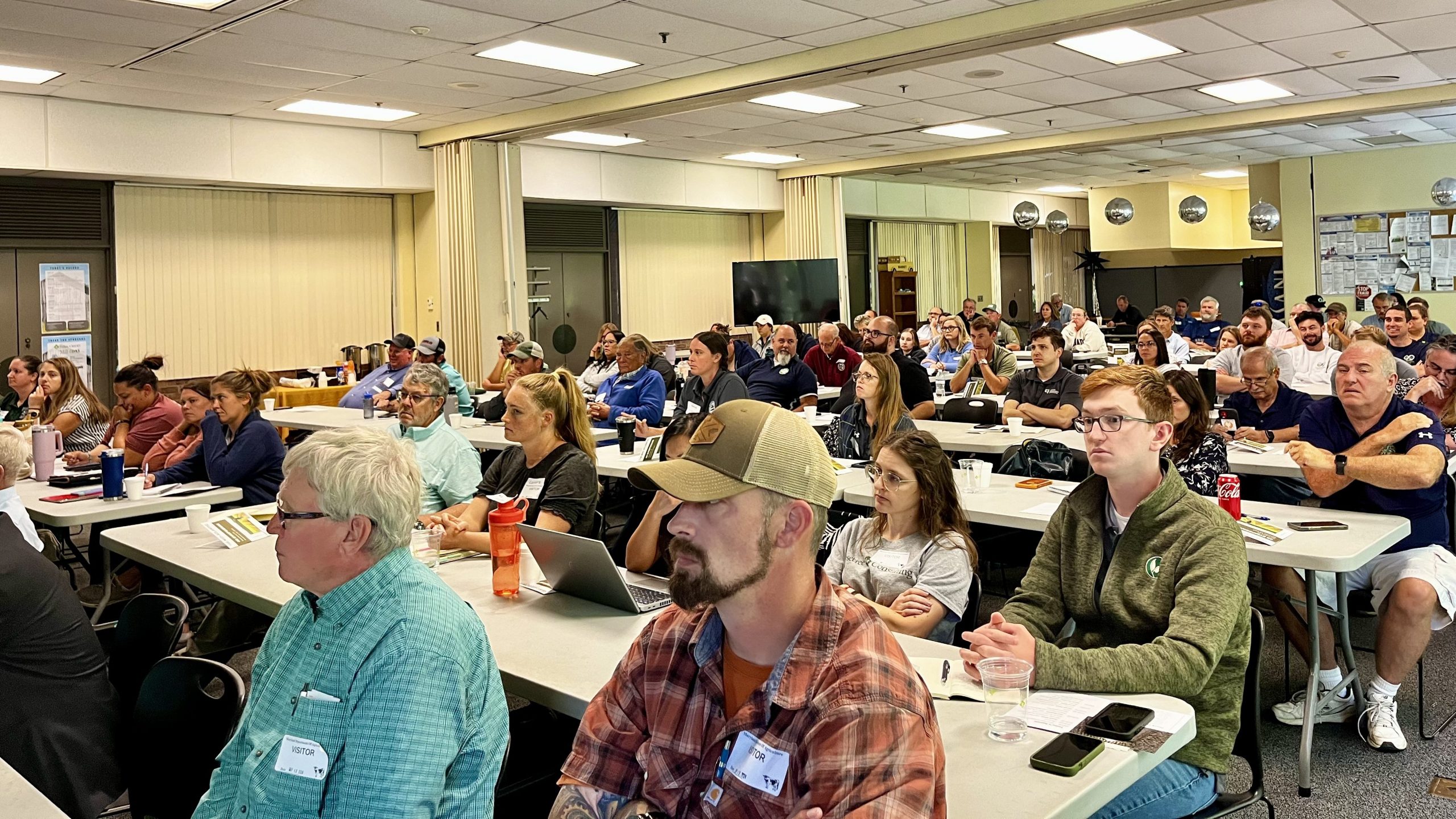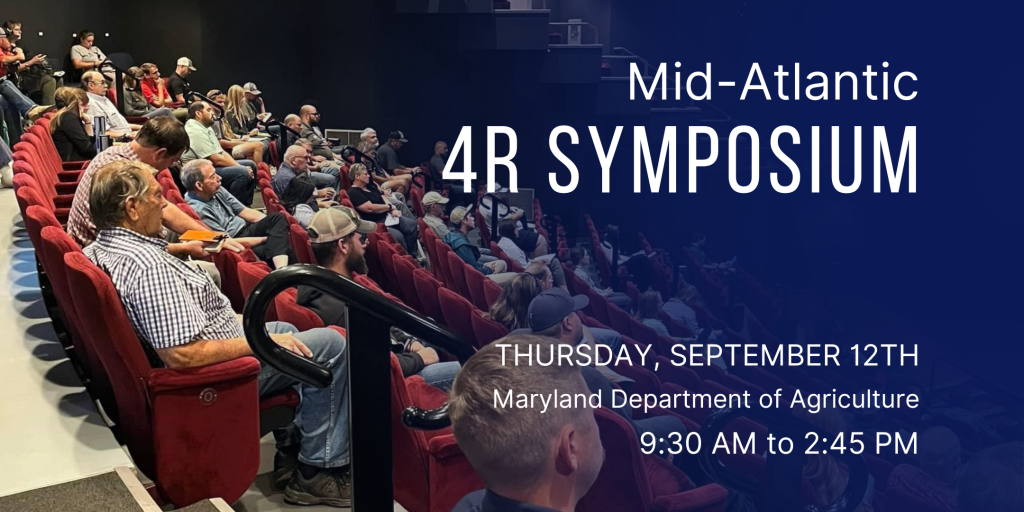4R Partnership Continues to Grow Across the Mid-Atlantic
Ensuring every nutrient application in the Mid-Atlantic is applied with the RIGHT source, in the RIGHT place, at the RIGHT rate, and at the RIGHT time.
(Chester, Maryland, December 23, 2024) – In March 2024, the Mid-Atlantic 4R Nutrient Stewardship Association (MA4R), the nonprofit organization supporting the Pennsylvania 4R Alliance (PA4R) and the Delaware Maryland 4R Alliance (DM4R), completed a five-year Strategic Plan to make a big impact across the Chesapeake Bay Watershed. The mission of the 4R Alliance is to empower trusted advisors to ensure that every nutrient application in the region is applied with the RIGHT source, in the RIGHT place, at the RIGHT rate, and at the RIGHT time to benefit farmers, the environment, and society.
The MA4R through the PA4R and DM4R, will advance the strategic plan with the support of a 2024 National Fish and Wildlife Foundation Innovative Nutrient and Sediment Reduction Grant Funding will support farmers to implement new advanced nutrient management practices, and grow the organization’s engagement with the trusted advisors of farmers.

The Mid-Atlantic 4R team will also continue the successful 4R voucher program with support from the Keith Campbell Foundation. In 2024, the team funded 31 vouchers with our first grant and covered 9,196 acres of planned advanced nutrient management practices. For 2025, the 4R Alliance has 30 vouchers available to farmer and agribusiness pairs to take one’s farming operation to the next step in advanced nutrient management. Enrollment for these vouchers is now open, please email Jenell McHenry to secure your voucher spot.
Furthermore, the strategic plan includes: defining a standardized methodology for measuring and comparing Nitrogen and Phosphorus Use Efficiency of 4R Best Management Practices (BMPs) vs. average Nitrogen Use Efficiency; serving trusted advisors by demonstrating 4R BMPs and their impact; growing partnerships and engagement; securing funds to continue to improve nutrient stewardship; and hiring a full-time Executive Director.

On December 16th, the Mid-Atlantic 4R Association welcomed Jenell McHenry as their first full-time Executive Director. Jenell has been employed by Thompson Ag Consulting for the past five years where she has served a number of agriculture organizations, including the 4R Alliance. Jenell currently resides in Kent County, Maryland with her husband Joey and son, Lee. As a family they raise beef cattle from cow to consumer, run a commercial trucking company, and farm corn, soybeans, wheat, barley, sorghum, and hay. Ben Hushon, Chair of the Mid-Atlantic 4R Board, said “we are very honored to have Jenell join our Association full-time and think about the 4Rs every day. Her expertise and experience will provide the skills necessary to expand the scope and scale of our future efforts.” Jenell can be reached at midatlantic4r@gmail.com and you can learn more about the PA4R, DM4R efforts at 4RMidAtlantic.com.
###

